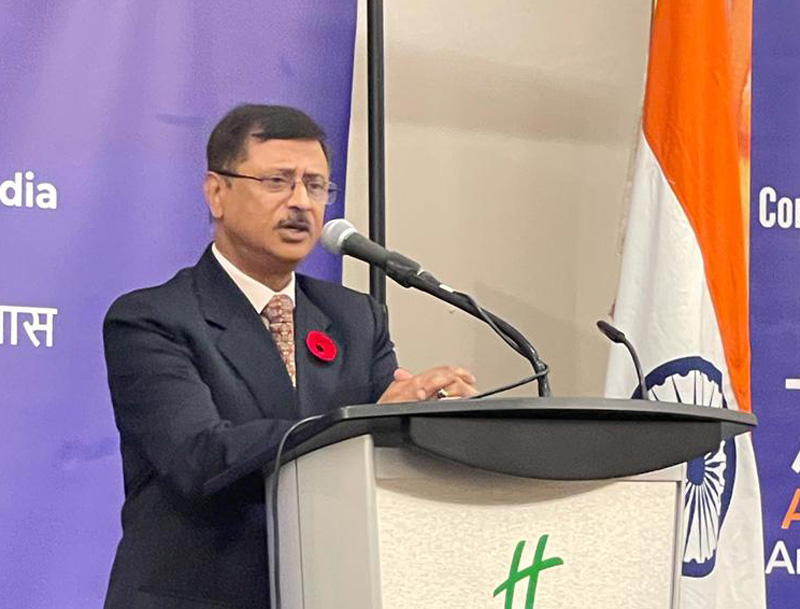Top Canadian official destroyed Nijjar-killing probe: India's High Commissioner to Canada

India's High Commissioner to Canada, Sanjay Kumar Verma, has said in an interview with the Globe and Mail that Canada's police investigation into the murder of Khalistan separatist Hardeep Singh Nijjar in British Columbia has been damaged by public statements made by a senior Canadian official.
The highest-ranking Indian diplomat in Canada has demanded that the Canadian government provided proof backing Ottawa’s allegation that "Indian agents" were behind the killing of Khalistani terrorist Hardeep Singh Nijjar in British Columbia.
The accusation, made by Prime Minister Justin Trudeau in September, deeply strained the relationship between India and Canada.

Khalistani terrorist Hardeep Singh Nijjar (Image courtesy: khalsavox.com)
Hardeep Singh Nijjar, who led the banned Khalistan Tiger Force (KTF), was gunned down by two unidentified assailants outside a gurdwara in Surrey, British Colombia, Canada, on June 18.
In 2020, India designated Nijjar (45) as a terrorist. After his name cropped up in several terrorism cases, Nijjar escaped to Canada in 1996.
Sanjay Kumar Verma said that India has yet to receive any credible evidence from Canada or its partners corroborating the claim that Indian agents played a role in Nijjar's killing in June.
"I would go a step further and say now the investigation has already been tainted," Verma told the newspaper. "A direction has come from someone at a high level to say India or Indian agents are behind it."
Verma did not name the high-level official, who, he said, destroyed the probe in Nijjar’s killing.
On September 18, Prime Minister Justin Trudeau said: "Canadian security agencies have been actively pursuing credible allegations of a potential link between agents of the government of India" and Nijjar's death.

PM Modi meeting Justin Trudeau during G20 Summit/ courtesy: X page
The diplomatic row over Nijjar's killing further escalated with New Delhi in September asking Ottawa to cut down its diplomatic presence, after which Canada withdrew 41 diplomats from India.
Despite the tension in bilateral relations, he expressed India's interest in strengthening business connections and re-engaging in discussions regarding a trade agreement.
It's worth noting that in September, Canada put a hold on negotiations for a potential trade deal with India, a move that came only three months after both countries expressed their intent to finalize an initial agreement within the year.
Canadian intelligence sources assert that they have intercepted communications and received intelligence from an undisclosed member of the Five Eyes alliance (which includes the US, Britain, Canada, Australia, and New Zealand) linking Indian operatives to Nijjar's murder.
Verma, while vehemently denying any Indian involvement in the killing, said that all diplomatic communications are confidential and cannot be presented as evidence in a court of law or made public.
"You are talking about illegal wiretaps and talking about evidence. Conversations between two diplomats are secure by all international law," he said. "Show me how you captured these conversations. Show me that someone did not mimic the voice."
Asked if Canada had sought the extradition of any suspects in the killing, Verma responded, "Those conversations are between the two governments."
The High Commissioner underscored that New Delhi has made 26 extradition requests to Ottawa during the past five to six years, and, so far, none have been processed.
Verma disclosed that he has been provided with security protection from the Royal Canadian Mounted Police (RCMP) due to safety concerns in view of life threats issued by Khalistani extremists thriving in Canada.
The High Commissioner's office also shared images of posters that have been circulating online and showing up in public areas in Vancouver and Toronto, specifically targeting him and the Indian consuls general in those cities.
Some of these posters characterize the Indian diplomats as "enemies of Canada," while others accuse them of running a "terror house" or even offer rewards for their assassinations.




